15 Conspiracy Thrillers That Still Pull You In
What makes conspiracy thrillers so captivating is their ability to twist reality and make us question everything. These films often explore the darker side of power and secrecy, pulling us into stories of hidden truths and covert operations. The constant sense of danger and mystery keeps us hooked from start to finish. If you love a story with layers of intrigue and suspense, you’ll find plenty to enjoy in these thrillers. Let’s take a look at some conspiracy thrillers that still manage to pull us in, even years after their release.
This post may contain affiliate links, which helps keep this content free. Please read our disclosure for more info.
The Parallax View
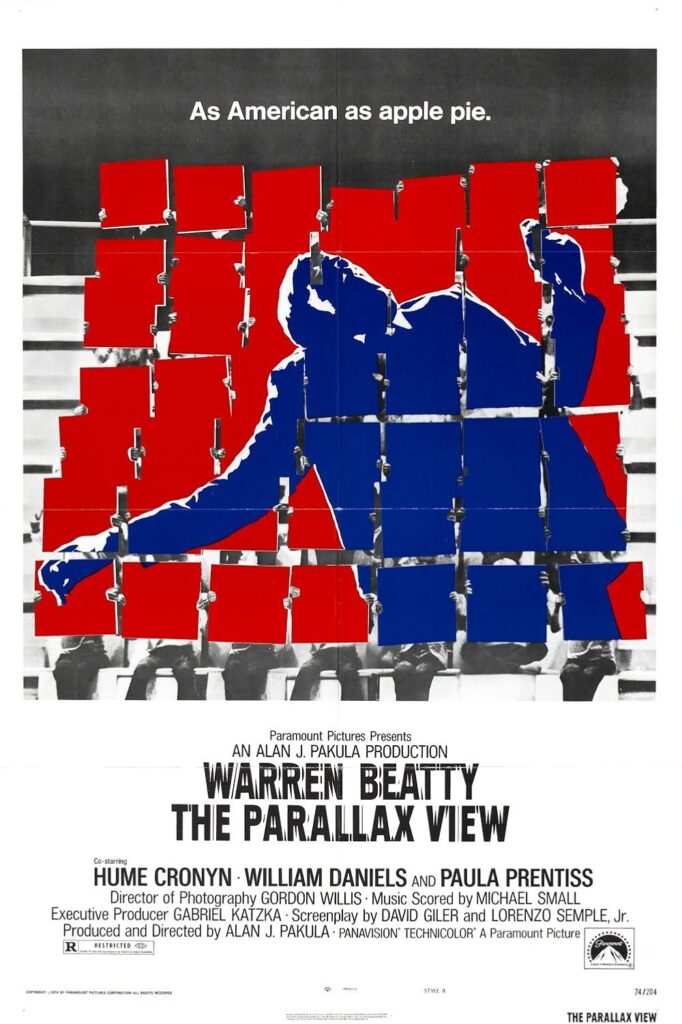
Released in 1974, The Parallax View tells the story of a journalist investigating a mysterious political assassination. The film explores the fear of hidden organizations controlling world events, keeping viewers on edge throughout. What makes it stand out is its atmosphere of paranoia and its portrayal of powerful forces working in the shadows. The complex plot and dark themes continue to draw viewers who enjoy a cerebral thriller. Its depiction of a faceless conspiracy has resonated with audiences, making it a classic in the genre.
Even after all these years, the film still holds relevance due to its portrayal of governmental and corporate manipulation. The suspense and mystery surrounding the Parallax Corporation’s influence create an intriguing narrative that lingers long after the credits roll. The film’s style and tone continue to be influential in conspiracy thriller cinema. If you love uncovering hidden truths and unraveling complex plots, The Parallax View is a must-watch. Its ability to maintain tension throughout is a testament to its status as a lasting thriller.
Three Days of the Condor
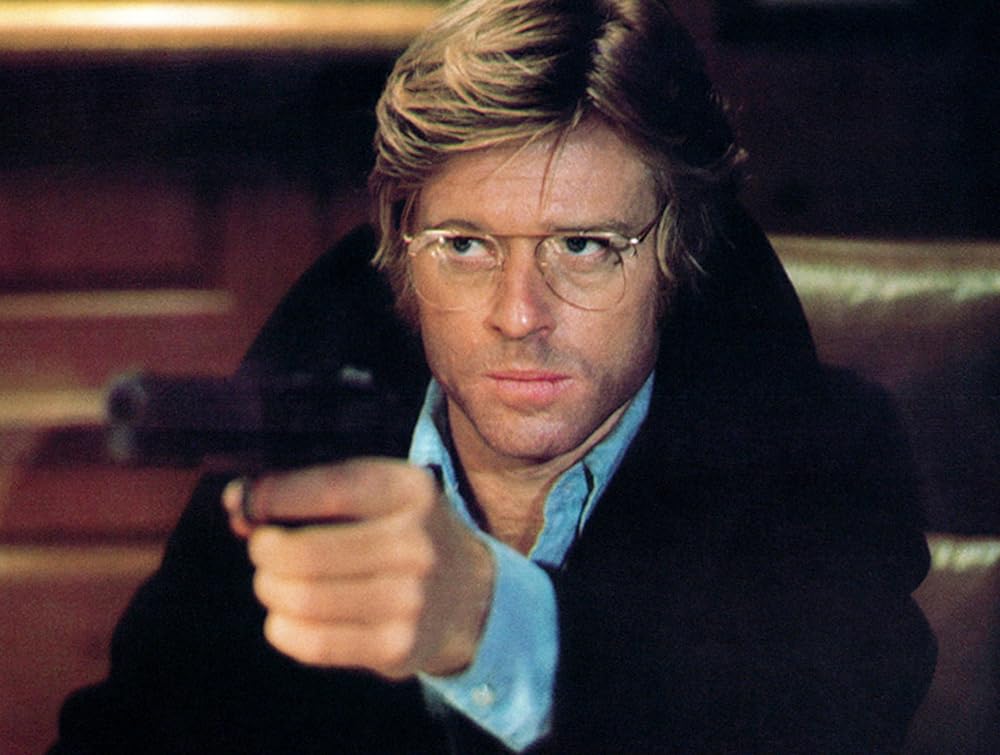
Three Days of the Condor was released in 1975, starring Robert Redford as a CIA analyst who uncovers a deadly conspiracy. The film combines espionage with suspense, drawing viewers into a web of government corruption and deception. Its gripping plot and tense atmosphere still resonate with modern audiences, as the themes of surveillance and secrecy remain relevant today. The unpredictability of the characters’ motivations and alliances keeps the story fresh even after decades. Redford’s performance and the film’s direction make it a standout in the conspiracy thriller genre.
The movie’s tension comes from the constant feeling of being watched and not knowing who to trust. The story’s focus on the personal struggle of a man caught in a larger conspiracy adds emotional depth to the narrative. Three Days of the Condor appeals to viewers who enjoy films that mix action with intellectual intrigue. The film’s pacing and atmosphere leave you questioning the true nature of power and control. Its exploration of the intelligence community and its shadowy operations keeps it relevant for conspiracy lovers.
Enemy of the State
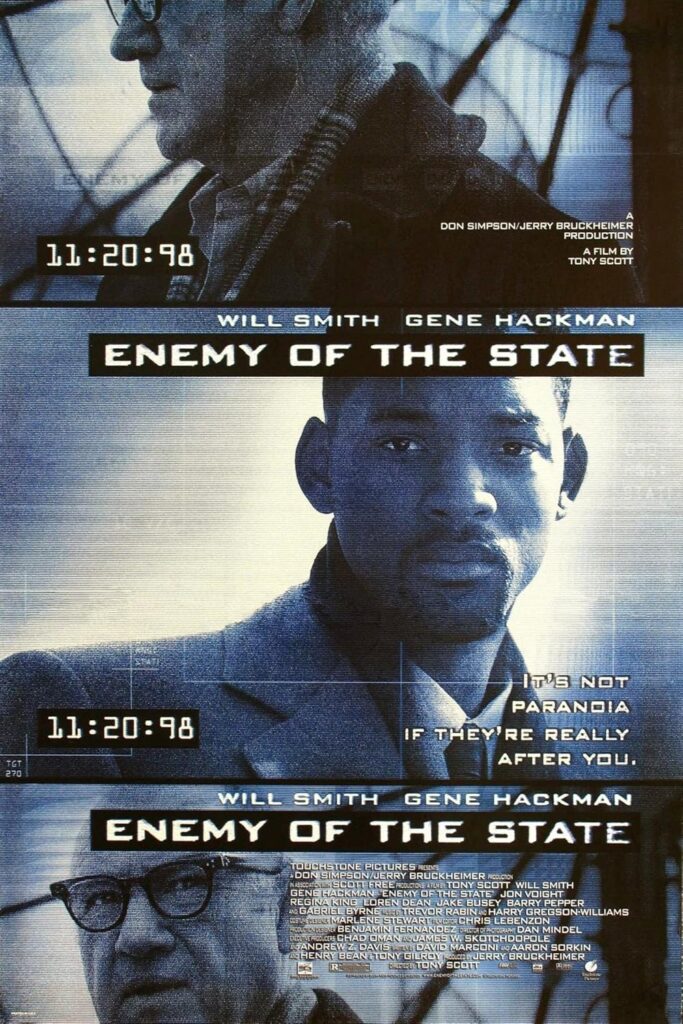
Released in 1998, Enemy of the State stars Will Smith as a lawyer who becomes entangled in a vast government conspiracy after receiving evidence of a political assassination. The film focuses on the theme of surveillance and the abuse of power, keeping audiences on the edge of their seats with its fast-paced narrative. What makes this thriller stand out is its portrayal of a government that will stop at nothing to maintain control, even at the cost of innocent lives. The film’s action-packed sequences and edge-of-your-seat tension are what continue to pull in audiences. It resonates with modern viewers due to its exploration of the balance between privacy and state power.
The film also benefits from strong performances by a talented cast, including Gene Hackman, who adds depth to the conspiracy plot. Enemy of the State mixes high-tech surveillance with old-fashioned thrills, which keeps the suspense high throughout. Its timely release, when the topic of privacy was becoming more prominent in the public consciousness, helped it find relevance. The idea that anyone can be watched at any time, and the consequences of that, makes it a timeless piece. Its blend of action and conspiracy keeps audiences engaged and questioning the extent of government power.
The Conversation
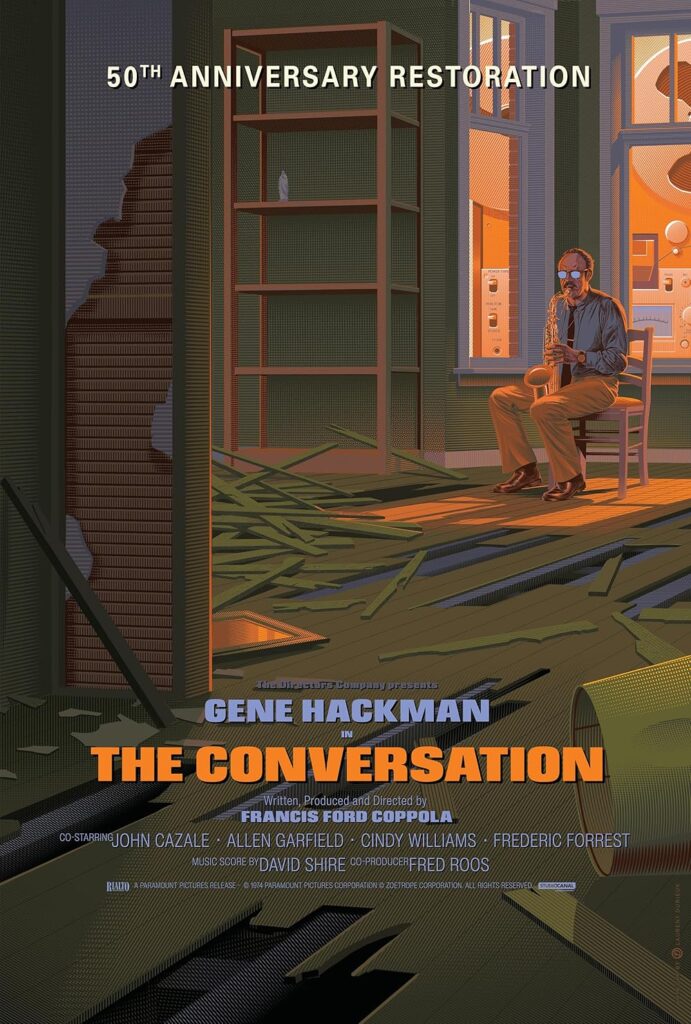
The Conversation, directed by Francis Ford Coppola and released in 1974, is a film that focuses on the paranoia of surveillance and personal privacy. Gene Hackman stars as a surveillance expert who inadvertently records a conversation that hints at a possible murder. What makes this film so compelling is its exploration of moral ambiguity and the psychological toll of being involved in a conspiracy. The slow-building tension and Hackman’s remarkable performance pull you into a world where every conversation and every action is under scrutiny. It’s a thought-provoking thriller that keeps you questioning the limits of privacy and trust.
The film is as much about internal conflict as it is about external conspiracy. The Conversation uses minimalist direction and subtle cues to build its suspense, making it a masterclass in quiet, intense storytelling. Even today, the themes of surveillance and privacy invasion remain particularly relevant. The personal stakes for the protagonist, who is torn between his moral compass and his involvement in something larger, make the film a deeply human experience. Its chilling atmosphere and lingering questions continue to make it a film that pulls viewers in.
The Lives of Others
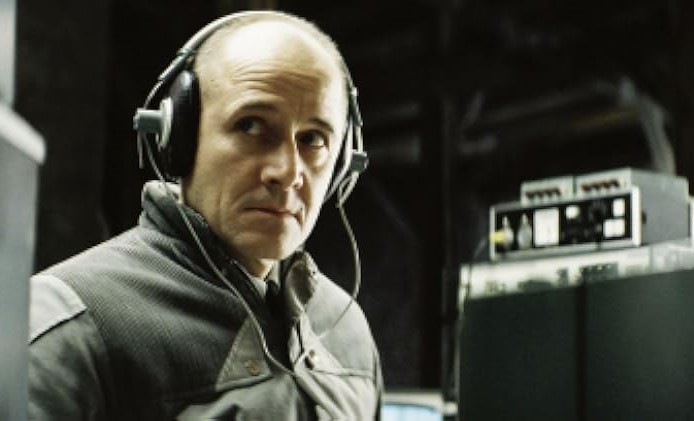
Released in 2006, The Lives of Others is a German film set during the Cold War, focusing on the surveillance of East German citizens by the Stasi. The film explores the complex relationship between surveillance, loyalty, and morality, drawing viewers into a story of betrayal and personal growth. What makes it a standout in the conspiracy genre is the emotional depth and moral complexity of its characters. The tension builds slowly as the protagonist wrestles with his role in the system, leading to a powerful and poignant climax. The film’s ability to intertwine personal and political narratives makes it a gripping thriller that still resonates today.
The Lives of Others maintains its relevance due to the universal themes of surveillance and state control, which continue to be pertinent in today’s society. The film’s meticulous attention to the nuances of life under surveillance gives it a haunting, unforgettable atmosphere. The powerful performances, particularly by Ulrich Mühe, who plays the lead role, anchor the emotional weight of the story. Viewers who appreciate a slower, more thoughtful thriller will find much to admire in this film. It’s a perfect blend of tension, character development, and historical relevance that keeps audiences coming back.
All the President’s Men
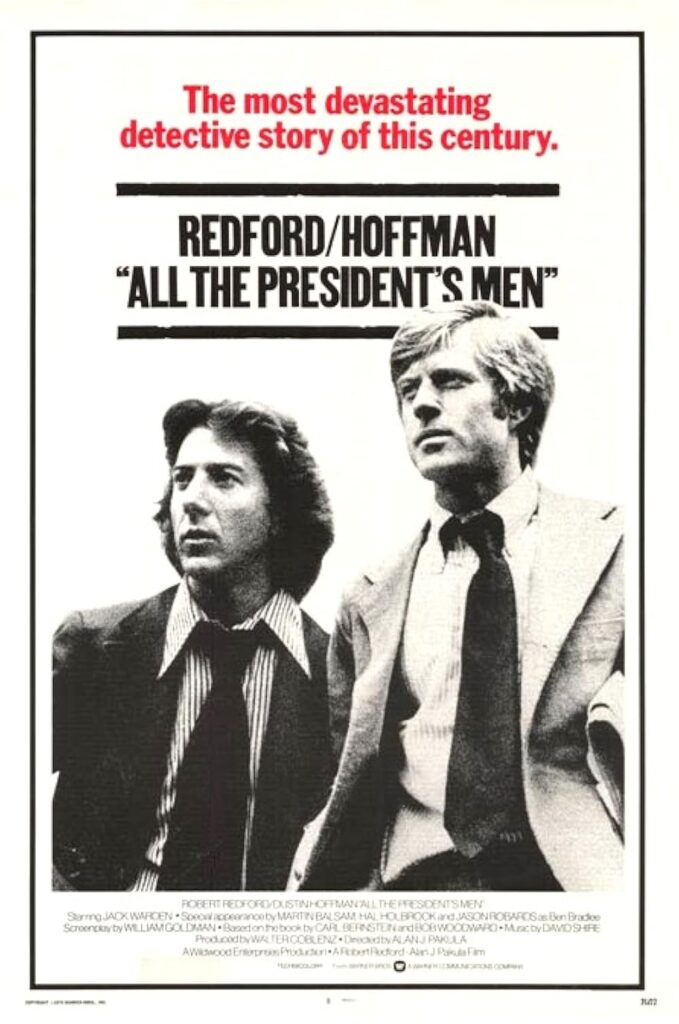
Based on the real-life investigation into the Watergate scandal, All the President’s Men was released in 1976 and starred Robert Redford and Dustin Hoffman as two journalists uncovering a vast political conspiracy. The film is a masterclass in investigative journalism and how persistence can bring down the powerful. Its factual basis and real-world implications make it one of the most powerful conspiracy thrillers in film history. The meticulous attention to detail and the slow-building tension as the journalists dig deeper keeps the audience hooked. Its portrayal of the press holding power accountable still resonates in today’s political landscape.
What makes All the President’s Men so gripping is its portrayal of the search for truth in the face of mounting obstacles and threats. The sense of urgency and the growing danger as the investigation progresses make for a thrilling watch. The film’s lasting appeal is rooted in its relevance to political corruption, a theme that continues to be timely. Its iconic scenes, such as the famous Follow the money line, are etched in cinematic history. As an exploration of the power of the media in uncovering government wrongdoing, it remains one of the genre’s finest examples.
Tinker Tailor Soldier Spy
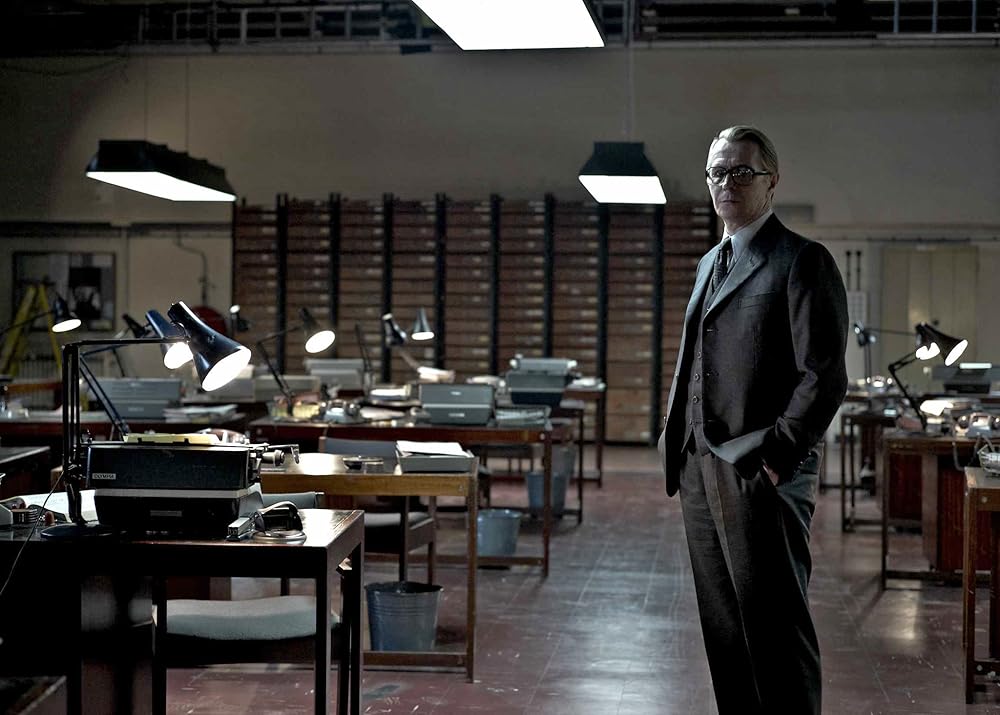
Based on the John le Carre novel, Tinker Tailor Soldier Spy was released in 2011 and is a gripping Cold War spy thriller. Set in the 1970s, the film follows a retired British spy as he is tasked with uncovering a Soviet mole within MI6. The film’s slow pace and intricate plotting make it a perfect example of a conspiracy thriller that rewards patience. The high level of suspense and the atmosphere of mistrust and secrecy keep viewers engaged throughout. Its complex characters and layered storylines are what continue to make it a classic in the genre.
The film’s appeal lies in its realism and the portrayal of espionage as a murky world of betrayal and deceit. The outstanding performances by Gary Oldman, Colin Firth, and Tom Hardy add to the film’s depth, making it a standout in modern spy thrillers. The tension, built from secretive meetings and subtle revelations, keeps the audience guessing until the final moments. What sets Tinker Tailor Soldier Spy apart is its thoughtful approach to the spy genre, focusing more on intelligence and strategy than action. It is a perfect film for those who love to decipher complex conspiracies.
The Manchurian Candidate
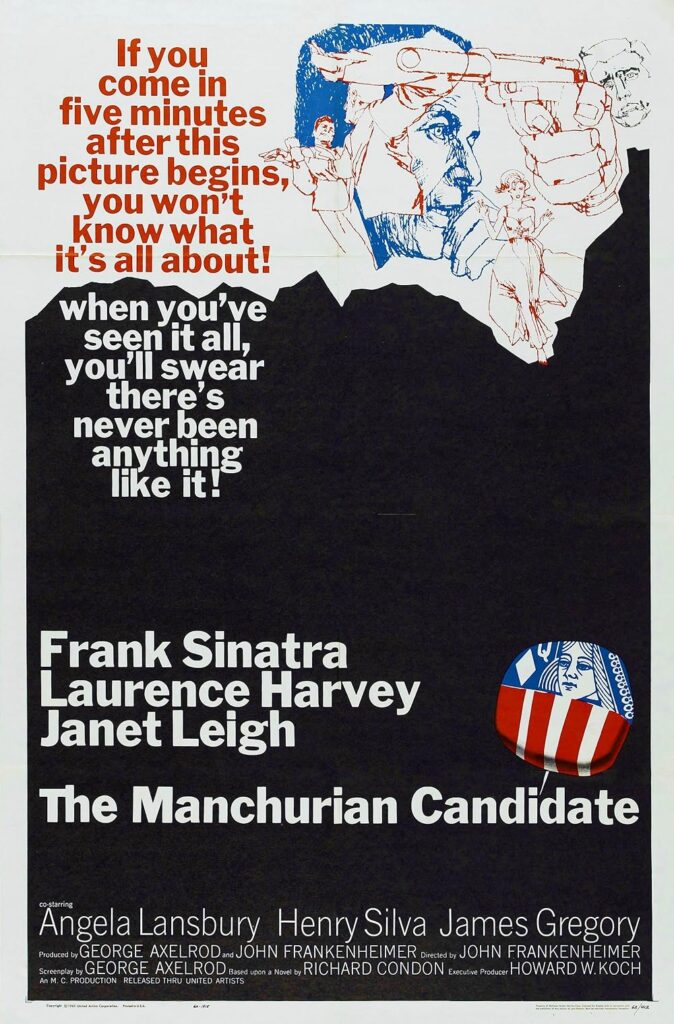
Released in 1962, The Manchurian Candidate is a chilling Cold War-era conspiracy thriller that centers on brainwashing and political manipulation. The film follows an American soldier who is brainwashed to become an unwitting assassin, with dire implications for national security. Its combination of psychological tension and political intrigue keeps viewers on edge throughout. The movie’s portrayal of mind control, hidden agendas, and manipulation remains a chilling experience, even decades after its release. The film’s ability to blend political thriller with psychological horror makes it a must-see for conspiracy fans.
Even today, The Manchurian Candidate maintains its relevance due to its exploration of power, control, and the vulnerability of the human mind. The suspense is enhanced by the excellent performances, especially by Laurence Harvey and Angela Lansbury. The film’s ability to tap into the fear of external influence and covert operations continues to resonate with modern audiences. Its legacy as one of the definitive conspiracy thrillers is secured by its unsettling atmosphere and thought-provoking themes. The blend of psychological thriller and political conspiracy has left an indelible mark on the genre.
JFK
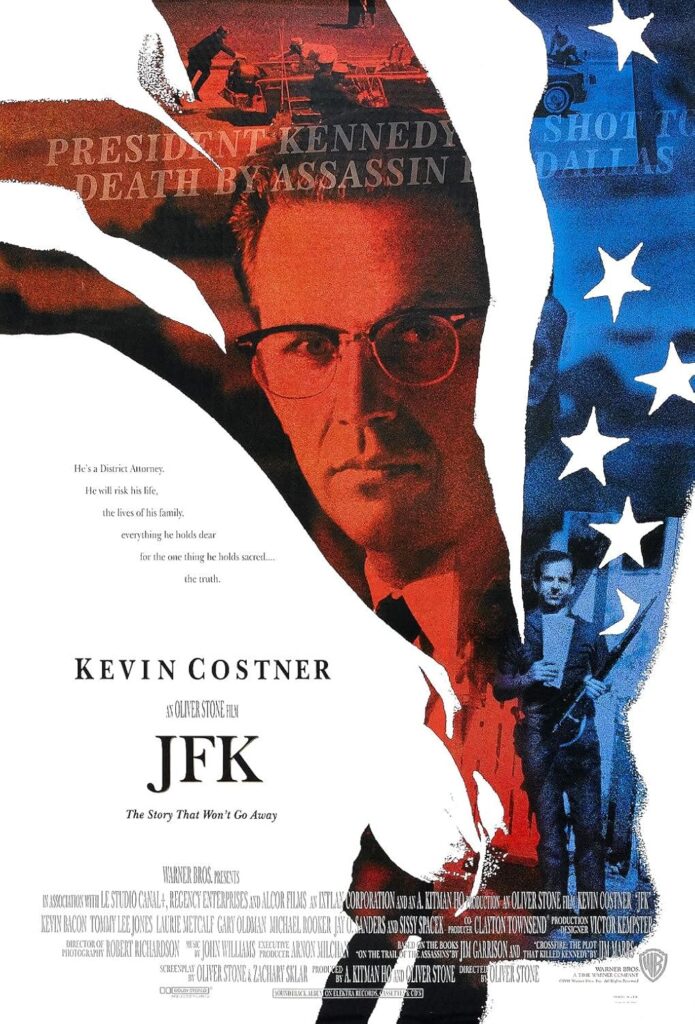
JFK, directed by Oliver Stone and released in 1991, is a political conspiracy thriller that examines the assassination of President John F. Kennedy. The film presents a controversial theory, suggesting that a larger conspiracy was involved in the killing. Stone’s meticulous research and the film’s intense pacing create a compelling argument for an alternate explanation of the events. The movie’s ability to blend fact and speculation keeps the audience questioning the official story, making it a fascinating exploration of conspiracy. Its portrayal of the government’s potential involvement in the assassination remains a powerful and thought-provoking narrative.
The film’s strong cast, including Kevin Costner, provides a gripping foundation for the story, while Stone’s direction heightens the tension throughout. The film continues to pull viewers in with its urgent examination of one of the most debated events in American history. The conspiracy theories presented in JFK still spark discussion and debate, even today. The film’s ability to combine historical drama with investigative thriller elements keeps it relevant for new audiences. Its lasting impact is proof of the power of conspiracy thrillers to provoke thought and reflection.
The Insider
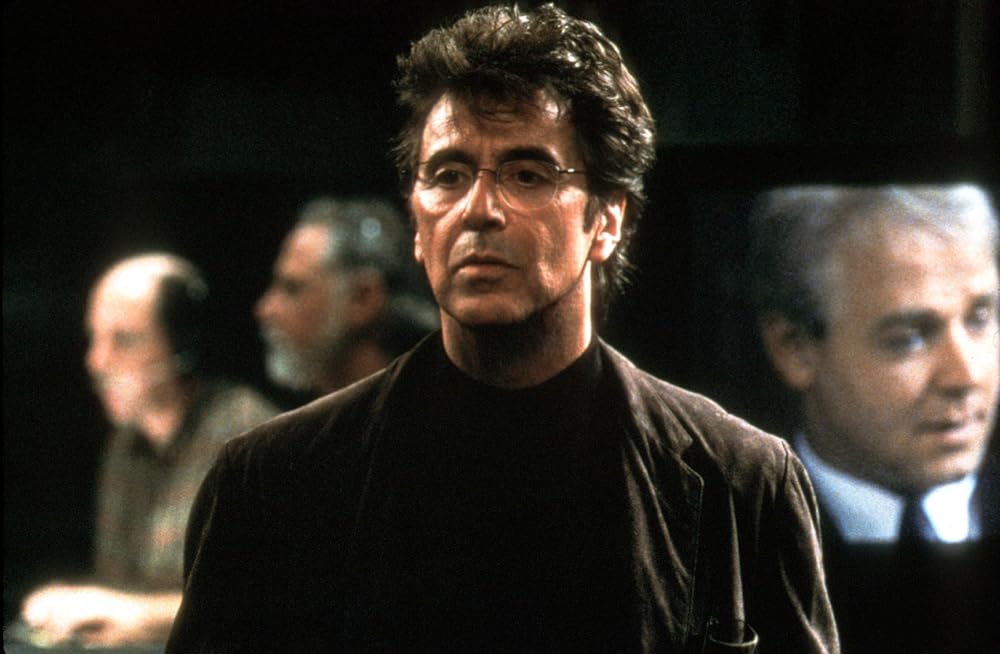
Released in 1999, The Insider tells the story of a whistleblower who exposes unethical practices within a major tobacco company. The film builds its tension through the constant fear that powerful groups will silence those who threaten their interests. What makes it so gripping is the emotional weight carried by its lead characters as they face pressure from all sides. The sense of danger grows as the truth begins to surface, pulling the audience deeper into the conspiracy. Its strong performances give the story a realism that keeps viewers fully engaged.
The film continues to draw interest because of its careful portrayal of corporate influence and the risks faced by those who speak out. Its themes remain relevant, especially in discussions about public health and corporate responsibility. The suspense comes from watching ordinary people confront a system much bigger than themselves. The slow escalation of tension keeps the audience invested throughout the entire story. This combination of drama and conspiracy makes The Insider a powerful entry in the genre.
Zodiac
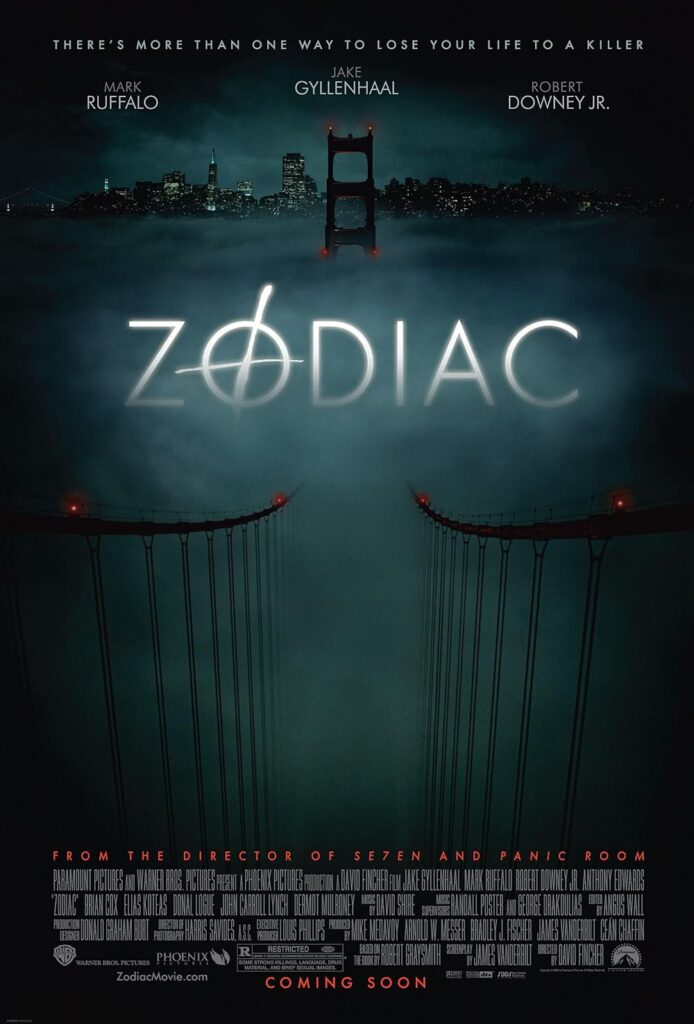
Released in 2007, Zodiac follows the decades-long hunt for the mysterious killer who terrorized California in the late 1960s and early 1970s. The film focuses on the obsession that grips those involved in the investigation, turning the case into a personal mission. What draws viewers in is the way the story blends true crime with the creeping sense that answers may always remain out of reach. The film’s slow-building suspense keeps the tension high from start to finish. The unanswered questions surrounding the case give it a lingering sense of mystery.
The movie remains compelling because it explores the psychological impact of pursuing a conspiracy with no clear end. Viewers find themselves drawn into the same maze of clues and uncertainty that consumes the investigators. Every small revelation feels meaningful, even as the bigger picture remains elusive. The realistic tone and meticulous detail make the story feel grounded and absorbing. This lasting sense of mystery is what continues to pull audiences in.
State of Play
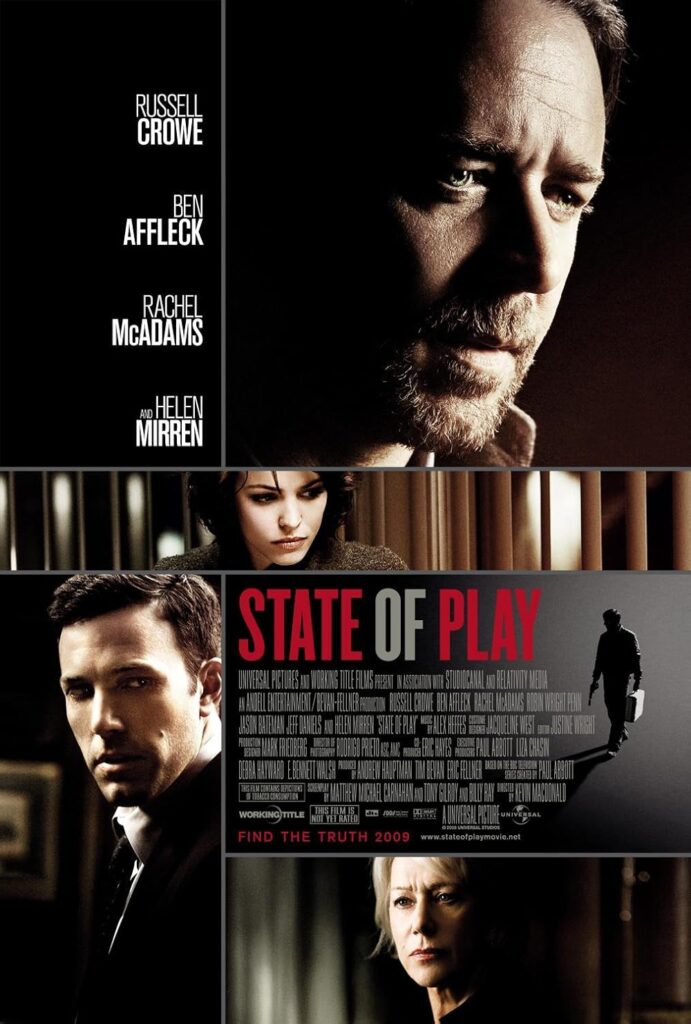
Released in 2009, State of Play revolves around a journalist investigating a suspicious death that leads to a much bigger political conspiracy. The tension escalates as each clue hints at deeper corruption within powerful institutions. What keeps the film engaging is the blend of investigative work and the growing risk faced by those trying to uncover the truth. The shifting alliances and hidden motives draw viewers into an intricate web of deception. The film stays gripping from the first revelation to the final moments.
Audiences continue to respond to the film because it highlights the challenges of pursuing truth in a world filled with conflicting interests. The constant pressure on the characters adds emotional weight to every twist. As the conspiracy becomes more complex, the sense of danger becomes more intense. The blend of journalism, politics, and suspense creates a rich viewing experience. This combination makes State of Play a standout in the conspiracy thriller category.
The Bourne Identity
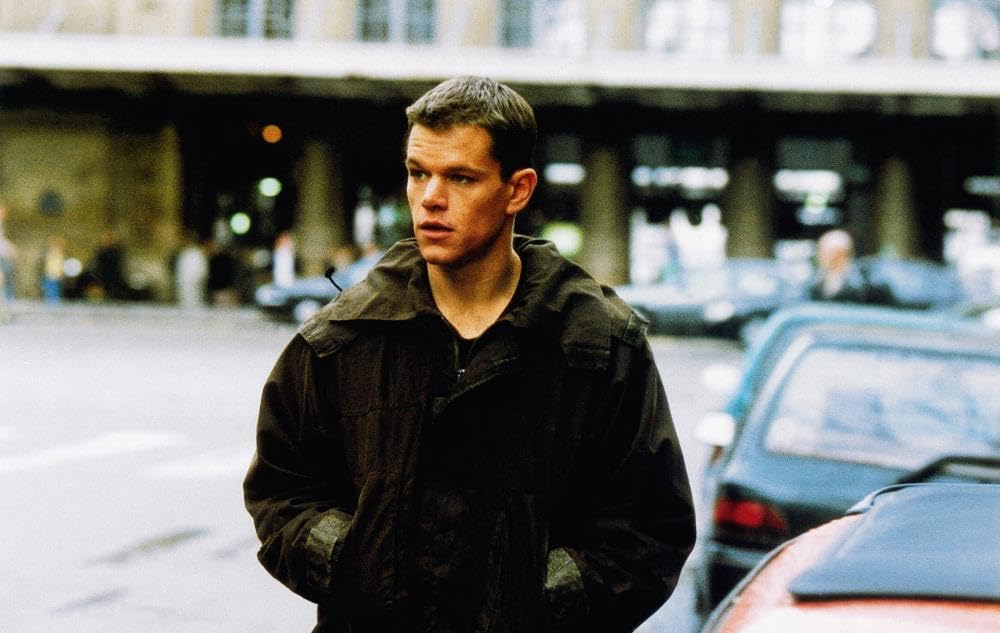
Released in 2002, The Bourne Identity introduces Jason Bourne, a man struggling to piece together his past while being hunted by the very agency that created him. The mystery surrounding his identity sets the stage for a conspiracy that reaches deeper than he ever imagined. The film’s blend of action and suspense keeps viewers invested in his journey. As Bourne uncovers small pieces of the truth, the stakes climb higher. The constant sense of pursuit gives the film its gripping energy.
The film remains popular because it presents a conspiracy built on manipulation, secrecy, and hidden agendas. Bourne’s search for answers feels personal and urgent, making every discovery meaningful. The uncertainty of who to trust adds tension to every scene. Viewers are drawn in by the mix of emotional depth and thrilling action. This lasting appeal is what keeps The Bourne Identity at the top of the genre.
Spotlight
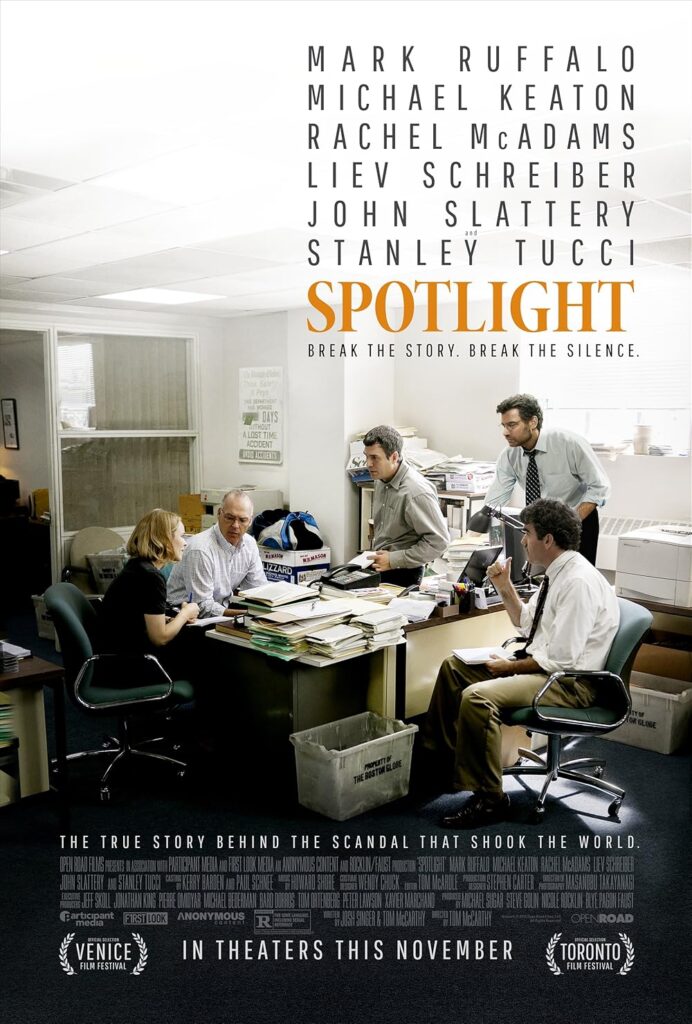
Released in 2015, Spotlight tells the true story of journalists uncovering a hidden pattern of wrongdoing within a powerful institution. The film follows their careful investigation as they uncover layers of secrecy and resistance. What makes the story so gripping is the slow unraveling of long-hidden details that point to a widespread scandal. The emotional weight carried by each revelation keeps viewers deeply invested. The deliberate pacing and powerful subject matter make the film a standout.
The story continues to resonate because it highlights the importance of determination in exposing the truth. Viewers are drawn into the careful process of gathering evidence and confronting those who try to silence it. The film’s realism gives the unfolding conspiracy a sense of urgency. Every step forward feels like a small victory in a long and difficult fight. This careful approach makes Spotlight a compelling conspiracy thriller rooted in real life.
Shutter Island

Released in 2010, Shutter Island follows two federal officers sent to investigate a disappearance at a remote psychiatric facility. The mystery deepens as the lead character begins to question everything he sees and hears. The film thrives on psychological tension, creating an atmosphere where nothing feels entirely trustworthy. With each new clue, the story twists in a direction that challenges the audience’s expectations. The eerie setting heightens the sensation that something larger and hidden is at play.
The movie continues to pull viewers in because it blurs the line between conspiracy and psychological unraveling. As the truth inches closer, the tension becomes more intense, keeping audiences guessing until the final reveal. The strong performances add emotional impact to the unfolding mystery. Viewers who enjoy stories filled with uncertainty find this film especially rewarding. Its lingering questions make it a memorable entry in the conspiracy thriller genre.
This article originally appeared on Avocadu.
